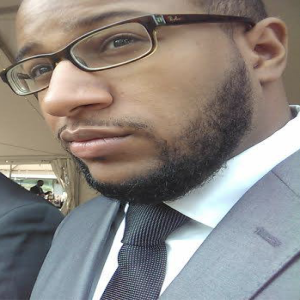
8.3K
Downloads
39
Episodes
Part of UMass Boston’s Philosophy Department, the Applied Ethics Center promotes research, teaching, and awareness of ethics in public life. In this podcast, Applied Ethics Center Director Nir Eisikovits hosts conversations on the intersection of ethics, politics, and technology.
Part of UMass Boston’s Philosophy Department, the Applied Ethics Center promotes research, teaching, and awareness of ethics in public life. In this podcast, Applied Ethics Center Director Nir Eisikovits hosts conversations on the intersection of ethics, politics, and technology.
Episodes

Friday Sep 17, 2021
School Integrations and Equal Education: A Conversation with Larry Blum
Friday Sep 17, 2021
Friday Sep 17, 2021
How should we understand efforts at school integration? And how are they related to the idea of equal education? Larry and I consider different historical understandings of integration and the problematic idea of integration as a vehicle for gaining social capital. Larry and Zoë Burkholder just published Integrations: The Struggle for Racial Equality and Civic Renewal in Public Education.
Larry is Emeritus Professor of Philosophy, and Distinguished Professor of Liberal Arts and Education at the University of Massachusetts Boston. You can find out more about his experience teaching a course on race and racism to Cambridge High School students by reading his High Schools, Race, and America's Future: What Students Can Teach Us About Morality, Diversity, and Community
And Larry’s website is here

Wednesday Sep 01, 2021
Harvard‘s Galileo Project: A Conversation with Avi Loeb
Wednesday Sep 01, 2021
Wednesday Sep 01, 2021
The New York Times 2017 front page story about UAP's (Unexplained Aerial Phenomena) spotted by Navy pilots, and the recent report to Congress by The Office of the Director of National Intelligence have generated tremendous public interest. I talk to Professor Avi Loeb about Harvard's new Galileo Project. We discuss what it means to explore UAP's scientifically, his reasons for pursuing this work, and about the academic community's reluctance to engage with these questions.
Avi Loeb, an Astrophysicist, is the Frank B. Baird Jr. Professor of Science and former chair of the department of Astronomy at Harvard. He is Director of the Institute for Theory and Computation (ITC) , the Founding Director of the Black Hole Initiative (BHI), Chair, Breakthrough Starshot Advisory Committee ,and Chair Board on Physics and Astronomy, National Academies . Avi has authored nearly 700 research articles and written 4 books, most recently Extraterrestrial: The First Sign of Intelligent Life Beyond Earth. He has held appointments at the institute for Advanced Study in Princeton as well as in the Weizmen Institute and at Tel Aviv University in Israel.

Thursday May 27, 2021
Institutional Corruption and Psychiatric Drugs: A Conversation with Lisa Cosgrove
Thursday May 27, 2021
Thursday May 27, 2021
What happens when the ties between the people who study psychiatric drugs and the companies who make them become too cozy? A discussion with UMass Boston psychology professor Lisa Cosgrove.
Lisa Cosgrove, PhD is a Clinical Psychologist and Professor at the University of Massachusetts, Boston where she teaches courses on psychiatric diagnosis and psychopharmacology. She was a Research Fellow at the Edmond J. Safra Center for Ethics, Harvard University (2010-2015) and served as a consultant to the United Nations Special Rapporteur on the Right to Health, child psychiatrist Dainius Puras. Lisa and her studentsconduct research that broadly aims to shift the current biomedical paradigm and integrate a human rights approach in mental health policies and practices. Specifically,her research addresses 1) the ethical and medical-legal issues that arise in organized psychiatry because of academic-industry relationships and 2) the ways in which commercialized science reinforces epistemic injustice and undermines an appreciation for the moral and political context of physical and emotional suffering. She is co-author, with Bob Whitaker, of Psychiatry under the influence: Institutional corruption, social injury and prescriptions for reform. Her recent publications have addressed the ethical issues that arise with the use of digital phenotyping and digital psychotropic drugs.
For information on Professor Cosgrove's work on institutional corruption as a fellow at Harvard's Safra Centre see here

Thursday Apr 08, 2021
My Favorite Passage: A conversation with Adam Beresford about Iliad, Book 24
Thursday Apr 08, 2021
Thursday Apr 08, 2021
Adam and I discuss the famous, moving passage at the end of the Iliad describing the meeting between Achilles and Priam. We talk quite a bit about Achilles' curious account of how Zeus determines humans' fate by doling out happenings from jars of joy and misfortune.
Adam Beresford teaches philosophy and classics at the University of Massachusetts at Boston. He has just published a translation of Aristotle's Ethics which you can (and should!) buy here and you can learn more about Adam's work here.
Here is a version of book 24 of the Iliad in case you want to read it for yourself.

Tuesday Sep 29, 2020
A Three-Way Peace Deal in the Middle East: A Conversation with Ehud Eiran
Tuesday Sep 29, 2020
Tuesday Sep 29, 2020
Israel has signed normalization agreements with the UAE and Bahrain. These are the first Middle East peace agreements in two and a half decades. Why now? What does each of the main actors in this drama stand to gain from these accords? Can Middle East diplomacy really bypass the Israeli Palestinian conflict as these agreements attempt to do? And does the deal signal a new alignment of power in the region?
Dr. Ehud (Udi) Eiran is a Senior Lecturer (US Associate Professor) of International Relations, University of Haifa, Israel, and an (active!) Board member at Mitvim – a leading Israeli think tank. He is also a senior fellow at the center for the Research of Intelligence Methodology. Dr. Eiran directed the University of Haifa’s center for national security, and was one of the co-founders of its center for maritime strategy. He also served as the academic director of Israel’s National Security College, (on behalf of the University). Dr. Eiran held research appointments at Harvard Law School, Harvard's Kennedy School, and Stanford’s Department of Political Science, and was a visiting lecturer in the Department of Political Science at MIT. Prior to his academic career Dr. Eiran held a number of positions in the Israeli civil service including as Assistant to the Prime Minister's Foreign Policy Advisor. He is the author of two books and some fifty scholarly articles, book chapters, and policy briefs, as well as numerous op-eds mostly in American and Israeli outlets. His research interests include spatial technological and legal aspects of international conflict (mostly in the Arab-Israeli context), negotiation and conflict resolution, maritime strategy, and intelligence studies.
Udi is currently a visiting scholar at Stanford's Freeman Spogli Institute for International Studies and a visiting professor of Israel studies at UC Berkley.

Friday Sep 11, 2020
Civic Dialogue in a Polarized Society: A Conversation With Lauren Barthold
Friday Sep 11, 2020
Friday Sep 11, 2020
The US seems more polarized than it's been in decades. Can we communicate across ideological and political chasms? What does it mean to have a dialogue with someone we profoundly, even vehemently disagree with? If we do have such a dialogue, does it make us any less polarized? Do the effects last? We talk with Professor Barthold about her new book: Overcoming Polarization in the Public Square: Civic Dialogue
Lauren Swayne Barthold (PhD, Philosophy) teaches Ethics at Emerson College and is also co-founder and program developer of the Heathmere Center for Cultural Engagement, whose mission is to build stronger communities through empowering marginalized voices. She has taught philosophy at Endicott College, Haverford College and Gordon College, where she co-founded and co-directed the gender studies minor. Overcoming Polarization in the Public Square: Civic Discourse, is her third book.
Some additional resources:

Monday Aug 10, 2020
Monday Aug 10, 2020
In the last few months, in the wake of recent protests against systemic racism, Confederate and other monuments have been torn down and defaced. What are these monuments supposed to convey? What's the argument for taking them down? Dana and I revisit our conversation about the ethics and politics of monument removal in light of recent events.
- Take a look at Dana's recent essay on the Politics of Monuments over at the APA's Black Issues in Philosophy Blog
- This is a good background piece from the Guardian
Dana Francisco Miranda is an Assistant Professor of Philosophy at the University of Massachusetts–Boston and a Faculty Fellow at the Applied Ethics Center there. His work is in political philosophy, Africana philosophy, and Madness Studies. He earned his doctorate at the University of Connecticut, where he completed his dissertation, “Approaching Cadavers: Suicide and Depression in the African Diaspora,” which investigated the philosophical significance of suicide, depression and well-being for members of the African Diaspora. He currently serves as the Secretary of Digital Outreach & Chair of Architectonics for the Caribbean Philosophical Association. Follow him on Twitter @DanaFMiranda.

Wednesday May 20, 2020
The Rise of Robot Overlords? A Conversation with Dan Feldman
Wednesday May 20, 2020
Wednesday May 20, 2020
Before Covid 19 turned the world upside down we worried about Artificial General Intelligence and, ultimately, Super-intelligence - the moment when our machines, powered by sophisticated AI, catch up with us and, ultimately, out-perform us. But how coherent, how pressing, are these concerns, really?
Dan Feldman is a senior research fellow at the UMB Applied Ethics Center. He is a software engineering executive and advisor to startups. He has more than 40 years of experience developing leading edge computing systems in a wide variety of industries, including financial services, health care, and wearable computing. He has served as the senior engineering executive in a number of startups, including two MIT Media Lab spin outs and an early e-health company that received a Computerworld Smithsonian Innovation award. He has served in leadership roles at IBM, Thomson Financial Services, Hewlett Packard Enterprise and Kayak. He is currently Chief Technology Officer at Touchplan, a construction collaboration technology company.

Thursday Apr 16, 2020
Thucydides and the Plague: A Conversation with Greg Fried
Thursday Apr 16, 2020
Thursday Apr 16, 2020
In the History of the Peloponnesian War, Thucydides provides a vivid description of the physical and social toll that a terrible plague took on Athens, a year or so into its war with Sparta. What explains the staying power of Thucydides' account? And what can we learn from it as we grapple with our own (albeit far less deadly) Covid 19 crisis?
Greg Fried is Professor of philosophy at Boston College. He has taught at the University of Chicago, Boston University, California State University Los Angeles, and Suffolk University. He teaches and publishes in political philosophy, with a particular interest in responses to challenges to liberal democracy and the rise of ethno-nationalism. He also works in philosophy of law, especially law and hermeneutics; philosophy and race; practical ethics, including just war theory; public philosophy; the history of ethics; Ancient philosophy; and 20th century Continental philosophy, especially Heidegger. Greg's upcoming book is Towards a Polemical Ethics: Between Heidegger and Plato (London: Rowman & Littlefield International, forthcoming 2020). Other works include Confronting Heidegger: A Critical Dialogue on Politics and Philosophy (London: Rowman & Littlefield International), Because It Is Wrong: Torture, Privacy and Presidential Power in the Age of Terror (With Charles Fried. New York: W. W. Norton, 2010) and Heidegger’s Polemos: From Being to Politics (New Haven: Yale University Press, 2000).
Reading
- Thucydides, History of the Peloponnesian War, Book II (see chapter VII for his account of the plague) http://classics.mit.edu/Thucydides/pelopwar.2.second.html
- Katherine Kelaidis, "What the Great Plague of Athens Can Teach Us Now." From The Atlantic. https://www.theatlantic.com/ideas/archive/2020/03/great-plague-athens-has-eerie-parallels-today/608545/

Thursday Apr 09, 2020
Thursday Apr 09, 2020
What are the moral criteria for triaging patients when the healthcare system is overwhelmed? How is Massachusetts thinking about this? And, more broadly, what is the appropriate balance between preserving public health and limiting an economic meltdown?
Please note: the last 3 minutes of this conversation are missing due to a Zoom malfunction. So it ends a bit abruptly. But the important stuff is all there!
James Hughes is a senior research fellow at the UMass Boston Applied Ethics Center. He is a bioethicist and sociologist who serves as the associate provost for institutional research, assessment, and planning at UMass Boston. He holds a doctorate in sociology from the University of Chicago where he taught bioethics at the MacLean Center for Clinical Medical Ethics. Since then, he has taught health policy, bioethics, medical sociology, and research methods at Northwestern University, the University of Connecticut, and Trinity College. He is the author of Citizen Cyborg: Why Democratic Societies Must Respond to the Redesigned Human of the Future (2004) and is the co-editor of Surviving the Machine Age: Intelligent Technology and the Transformation of Human Work (2017). In 2005 he co-founded the Institute for Ethics and Emerging Technologies (IEET) with Oxford philosopher Nick Bostrom, and since then has served as its executive director. Hughes serves as associate editor of the Journal of Evolution and Technology, and as co-founder of the Journal of Posthuman Studies. He is also a fellow of the World Academy of Arts and Sciences, a member of Humanity+, the Neuroethics Society, the American Society of Bioethics and Humanities, and the Working Group on Ethics and Technology at Yale University, and served on the State of Connecticut’s Regenerative Medicine Research Advisory Committee. He speaks on medical ethics, health care policy, and future studies worldwide.
Readings:
Massachusetts Crisis Standards of Care for Covid 19:
https://d279m997dpfwgl.cloudfront.net/wp/2020/04/CSC_April-7_2020.pdf
When Can America Reopen From its Corona Virus Shutdown?
